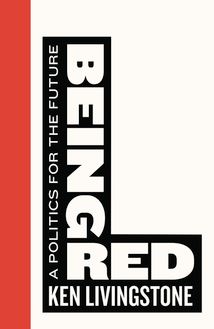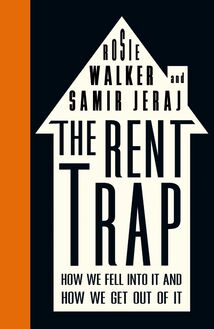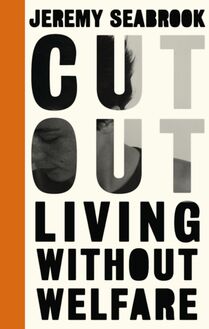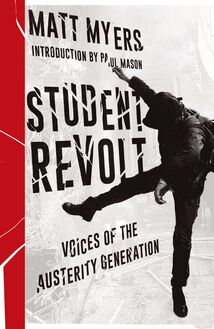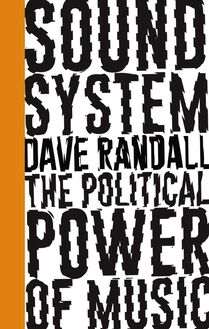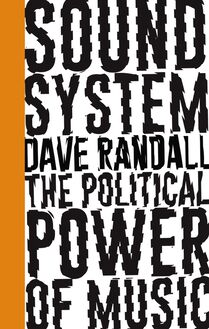-
 Univers
Univers
-
 Ebooks
Ebooks
-
 Livres audio
Livres audio
-
 Presse
Presse
-
 Podcasts
Podcasts
-
 BD
BD
-
 Documents
Documents
-
- Cours
- Révisions
- Ressources pédagogiques
- Sciences de l’éducation
- Manuels scolaires
- Langues
- Travaux de classe
- Annales de BEP
- Etudes supérieures
- Maternelle et primaire
- Fiches de lecture
- Orientation scolaire
- Méthodologie
- Corrigés de devoir
- Annales d’examens et concours
- Annales du bac
- Annales du brevet
- Rapports de stage
La lecture à portée de main
Vous pourrez modifier la taille du texte de cet ouvrage
Découvre YouScribe en t'inscrivant gratuitement
Je m'inscrisDécouvre YouScribe en t'inscrivant gratuitement
Je m'inscrisEn savoir plus
Vous pourrez modifier la taille du texte de cet ouvrage
En savoir plus

Description
Discussing his battle with Boris Johnson, the fight against privatisation and pollution as well as his analysis of Jeremy Corbyn’s arguably radical leadership and its implications for the future, Livingstone displays his trademark honesty and humour, refusing to shy away from controversy or debate.
Published in partnership with the Left Book Club.
List of Illustrations
Series Preface
Editor's Preface
Foreword by Ken Livingstone
1. The GLC Years (in Conversation with Anna Minton)
2. The GLA Years and Beyond (in Conversation with Anna Minton)
3. Boris Will Be the Death of Me
4. Rebuilding the Party, Rebuilding Britain
5. Ken: A Personal Portrait: Interview by Angharad Penrhyn Jones
6. 'I Don’t Know Much about Art But...' - Jan Woolf
Notes
Sujets
Informations
| Publié par | Pluto Press |
| Date de parution | 20 février 2016 |
| Nombre de lectures | 0 |
| EAN13 | 9781783718139 |
| Langue | English |
Informations légales : prix de location à la page 0,0498€. Cette information est donnée uniquement à titre indicatif conformément à la législation en vigueur.
Extrait
Join the Left Book Club
Membership of the Left Book Club costs just £40 a year, for which you will receive four specially commissioned or licensed titles each year, plus other members’ benefits, such as access to events, newsletters, and special offers on non-LBC titles.
To join please visit www.leftbookclub.com
Being Red
A Politics for the Future
Ken Livingstone
Edited by Anna Minton, on behalf of the Left Book Club
First published 2016 by Pluto Press 345 Archway Road, London N6 5AA
www.plutobooks.com
Copyright © Ken Livingstone 2016 Chapter 6 copyright © Jan Woolf
The right of Ken Livingstone to be identified as the author of this work has been asserted by him in accordance with the Copyright, Designs and Patents Act 1988.
The Left Book Club, founded in 2014, company number 9338285, pays homage to the original Left Book Club founded by Victor Gollancz in 1936.
Every effort has been made to trace copyright holders and to obtain their permission for the use of copyright material in this book. The publisher apologises for any errors or omissions in this respect and would be grateful if notified of any corrections that should be incorporated in future reprints or editions.
British Library Cataloguing in Publication Data A catalogue record for this book is available from the British Library
ISBN 978 0 7453 9905 8 Paperback ISBN 978 1 7837 1812 2 PDF eBook ISBN 978 1 7837 1814 6 Kindle eBook ISBN 978 1 7837 1813 9 EPUB eBook
This book is printed on paper suitable for recycling and made from fully managed and sustained forest sources. Logging, pulping and manufacturing processes are expected to conform to the environmental standards of the country of origin.
Typeset by Stanford DTP Services, Northampton, England
Simultaneously printed in the European Union and United States of America
Contents
List of Illustrations
Series Preface
Editor’s Preface
Foreword by Ken Livingstone
1
The GLC Years
Ken Livingstone in Conversation with Anna Minton
2
The GLA Years and Beyond
Ken Livingstone in Conversation with Anna Minton
3
Boris Will Be the Death of Me
by Ken Livingstone
4
Rebuilding the Party, Rebuilding Britain
by Ken Livingstone
5
Ken: A Personal Portrait
Interviewed by Angharad Penrhyn Jones
6
‘I Don’t Know Much About Art But …’
by Jan Woolf
Notes
List of Illustrations
1.1
Keep London out of the Killing Ground . Peter Kennard. GLC peace poster 1983
1.2
The final vote on setting the rate (the council tax of the time). County Hall, March 1985
1.3
Say No To No Say . Anti GLC abolition poster 1984
2.1
Photo-Op . kennardphillipps 2005
2.2
Ken, Gordon Brown and Nelson Mandela at the unveiling of Mandela’s statue in Parliament Square, 29 August 2007
2.3
Bob and Roberta Smith. Painting, donated to Bid for Ken, Gimpel Fils 2012
5.1
Ken campaigning against rises in fares for using public transport, 8 March 1982
5.2
Publicity for an ITV programme on the effects of the abolition of the GLC, 19 October 1984
5.3
Ken with his dog Coco in his Cricklewood garden, December 2015
6.1
Haywain with Cruise Missiles . Peter Kennard 1980
6.2
Ken with Peter Kennard at Welcome to Britain , Folkestone 1994
6.3
Ken performing in Peter Kennard’s Our Financial Times , Gimpel Fils 1995
6.4
Brutal Dictatorship . The Assistant for Mayor policy poster 2008. The Assistant, aka Steve Lowe and Adam Wood
6.5
Sketch for Essex Road . Banksy. Sold at Bid for Ken, Aquarium gallery 2008
Series Preface
The first Left Book Club (1936–48) had 57,000 members, had distributed 2 million books, and had formed 1,200 workplace and local groups by the time it peaked in 1939. LBC members were active throughout the labour and radical movement at the time, and the Club became an educational mass movement, remodelling British public opinion and contributing substantially to the Labour landslide of 1945 and the construction of the welfare state.
Publisher Victor Gollancz, the driving force, saw the LBC as a movement against poverty, fascism and the growing threat of war. He aimed to resist the tide of austerity and appeasement, and to present radical ideas for progressive social change in the interests of working people. The Club was about enlightenment, empowerment and collective organisation.
The world today faces a crisis on the scale of the 1930s. Capitalism is trapped in a long-term crisis. Financialisation and austerity are shrinking demand, deepening the depression and widening social inequalities. The social fabric is being torn apart. International relations are increasingly tense and militarised. War threatens on several fronts, while fascist and racist organisations are gaining ground across much of Europe. Global warming threatens the planet and the whole of humanity with climate catastrophe. Workplace organisation has been weakened, and social democratic parties have been hollowed out by acceptance of pro-market dogma. Society has become more atomised, and mainstream politics suffers an acute democratic deficit.
Yet the last decade has seen historically unprecedented levels of participation in street protest, implying a mass audience for radical alternatives. But socialist ideas are no longer, as in the immediate post-war period, ‘in the tea’. One of neoliberalism’s achievements has been to undermine ideas of solidarity, collective provision and public service.
The Left Book Club aspires to meet the ideological challenge posed by the global crisis. Our aim is to offer high-quality books at affordable prices that are carefully selected to address the central issues of the day and to be accessible to a wide general audience. Our list represents the full range of progressive traditions, perspectives and ideas. We hope the books will be used as the basis of reading circles, discussion groups, and other educational and cultural activities relevant to developing, sharing and disseminating ideas for radical change in the interests of the common people at home and abroad.
The Left Book Club collective
Editor’s Preface
This book comes out at a time of tumultuous change and activity for the left in Britain, representing arguably the greatest upheaval in Labour politics since the schisms of the early 1980s. So it feels apt for the newly revived Left Book Club to bring out a book which spans the career of one of the left’s most successful political figures. Until recently he appeared to have exited the stage, swapping politics for life with a young family, but with the election of Jeremy Corbyn as Labour leader he is firmly back in the public eye.
The genesis of the book came last year, when Ken approached the soon to relaunch Left Book Club with a view to publishing writing he had been working on about his relationship with Boris Johnson and his reflections on the future of the left in Britain.
Ken has already written a very comprehensive autobiography, You Can’t Say That , and we felt that alongside his new writing, rather than reprising key episodes from his career, we wanted to take a more journalistic approach, highlighting central aspects that seem particularly relevant in today’s political context. As a result we suggested to Ken that we intersperse his writing with a series of candid interviews addressing the wide range of issues and controversies he has been involved with, in a style in keeping with the Left Book Club’s aim to provide compelling, accessible writing for a wide-ranging, politically engaged readership.
The result is three extensive interviews which complement Ken’s own writing. The first interview covers his time as leader of the Greater London Council, which with the benefit of hindsight reflects that rarely achieved moment in politics when a politician breaks the mould and captures the changing spirit of the times. That contrasts with the more executive role of Mayor of London, which Ken held first as an independent after Tony Blair barred him from standing as the Labour candidate, and then later as a Labour Mayor, after he was readmitted to the Labour Party. In addition to these two pieces we wanted a far more personal interview that would provide a snapshot of his background, character and family relationships, which was carried out by the writer Angharad Penrhyn Jones, editor of the award-winning anthology Here We Stand .
One aspect of Ken’s career that has often been overlooked is his support for artists and in particular his association with Peter Kennard, who was regarded as almost an artist-in-residence at the GLC. Writer Jan Woolf’s essay, ‘I Don’t Know Much About Art But …’, offers a window into the relationship that Ken has maintained with the visual arts.
As the book started to take shape the political context changed dramatically with the election of Jeremy Corbyn as Labour leader. As commentators proclaimed that Corbyn was an old Labour dinosaur, the project became fascinating to me as I prepared for my interviews with Ken and researched the struggles on the left which had formed the backdrop to my childhood but were vague in outline and detail. For anyone over 50 with an interest in politics, the titanic struggles around the direction of the left and the controversies over caucuses and rate capping will be familiar. For anyone under 45 they become far more vague, while those under 40 often know next to nothing about them at all. This generation gap became abundantly clear as New Labour veterans of a certain age were unable to grasp how the support for Corbyn had swelled, while their dire warnings of a return to a politics of more than 30 years ago fell on deaf ears; these were old battles of little relevance for the predominantly young audience enthused by Corbyn.
Of equal interest to me was hearing Ken describe how New Labour had taken on the more undemocratic elements of old Labour’s political tactics and used them against him to prevent him standing as Mayor of London. But just as Mrs Thatcher’s abolition
-
 Univers
Univers
-
 Ebooks
Ebooks
-
 Livres audio
Livres audio
-
 Presse
Presse
-
 Podcasts
Podcasts
-
 BD
BD
-
 Documents
Documents
-
Jeunesse
-
Littérature
-
Ressources professionnelles
-
Santé et bien-être
-
Savoirs
-
Education
-
Loisirs et hobbies
-
Art, musique et cinéma
-
Actualité et débat de société
-
Jeunesse
-
Littérature
-
Ressources professionnelles
-
Santé et bien-être
-
Savoirs
-
Education
-
Loisirs et hobbies
-
Art, musique et cinéma
-
Actualité et débat de société
-
Actualités
-
Lifestyle
-
Presse jeunesse
-
Presse professionnelle
-
Pratique
-
Presse sportive
-
Presse internationale
-
Culture & Médias
-
Action et Aventures
-
Science-fiction et Fantasy
-
Société
-
Jeunesse
-
Littérature
-
Ressources professionnelles
-
Santé et bien-être
-
Savoirs
-
Education
-
Loisirs et hobbies
-
Art, musique et cinéma
-
Actualité et débat de société
- Cours
- Révisions
- Ressources pédagogiques
- Sciences de l’éducation
- Manuels scolaires
- Langues
- Travaux de classe
- Annales de BEP
- Etudes supérieures
- Maternelle et primaire
- Fiches de lecture
- Orientation scolaire
- Méthodologie
- Corrigés de devoir
- Annales d’examens et concours
- Annales du bac
- Annales du brevet
- Rapports de stage
